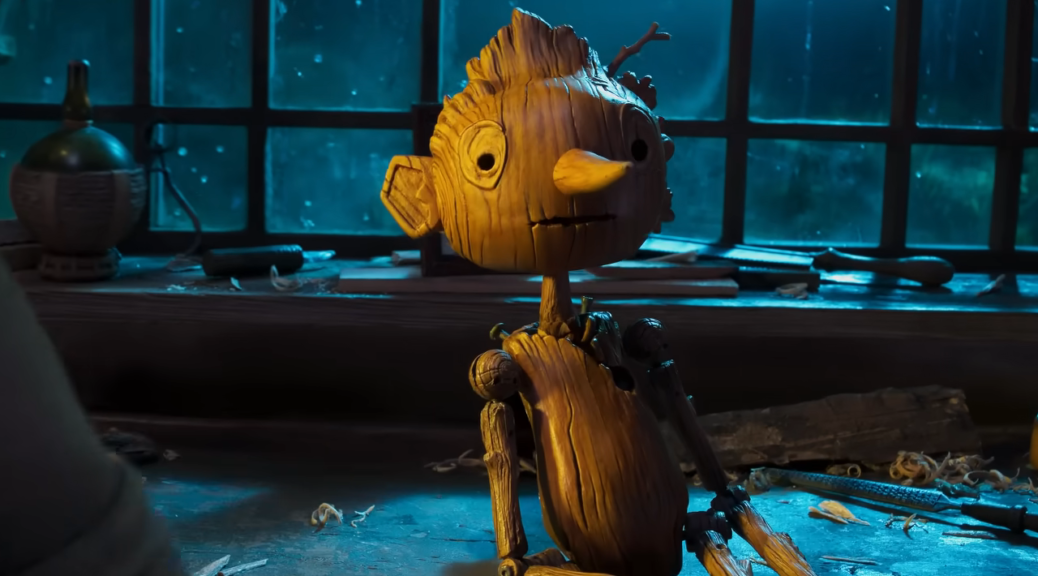Guillermo Del Toro’s Pinocchio
by Hope Madden
Is it any surprise that Guillermo del Toro’s visionary style, sentimental sensibilities, and macabre leanings suit animation so well? If there was any question, he dispels it with his gorgeous, emotional stop-motion wonder, Guillermo del Toro’s Pinocchio.
Co-directed with sculptor/animator Mark Gustafson, the film begins, as all good children’s tales must, with devastating loss and grief. If you thought the opening minutes of Up! were heartbreaking, gird your loins for this one.
The tragedy begins to abate, albeit clumsily and with much shouting, once Geppetto (David Bradley) hacks away at the tree recently occupied by one Sebastian J. Cricket, homeowner (Ewan McGregor, charming). Cricket’s home becomes Geppetto’s disobedient new puppet. You may think you know where it goes from here, but you do not.
Del Toro’s script, co-written with Patrick McHale and Matthew Robbins, establishes itself immediately as a very different story than Disney’s. The 1940 film – and, to a degree, the live-action remake Disney launched earlier this year – offers a cautionary tale about obedience. So does del Toro’s, although, in true GDT fashion, he’s warning against it.
Set between world wars in rural Italy, the film – as so many of del Toro’s do – examines the presence and pressures of authoritarianism, specifically Catholicism and fascism, on families and on the young.
A magnificent cast including Cate Blanchett, Tilda Swinton, Tim Blake Nelson, Ron Perlman, Burn Gorman, Finn Wolfhard, John Turturro, Christoph Waltz, and Gregory Mann as Pinocchio brings charisma and dark humor to their roles. This matches the sometimes darkly funny images. Waltz, in particular, is garish, frightening fun as Count Volpe, puppet master.
The animation itself is breathtaking, and perfectly suited to the content, as if we’ve caught an artist in the act of giving his all to bring his creation to life. Everything about the film is so tenderly del Toro, whose work mingles wonder with melancholy, historical insight with childlike playfulness as no other’s does.







